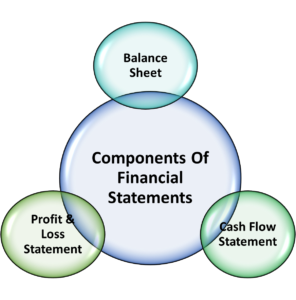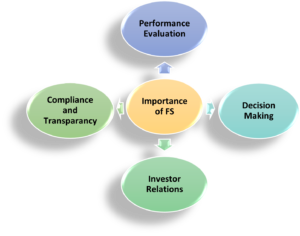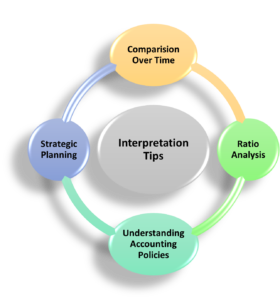Understanding Financial Statements: A Beginner’s Guide for Entrepreneurs
Navigating the financial world may be challenging for entrepreneurs, especially when they have to deal with complex data like Financial Statements. But understanding or analysing those assertions is essential to making sound decisions and moving your organization towards success. Here in the beginners guide, we have tried to simplify the basic fundamentals of financial statements and their construction so users can understand their importance and make good use of them.
What Are Financial Statements?
Financial statements are comprehensive historical reports that provide insight into the financial performance and position of a business over a specific period. They serve as a means of communicating critical financial information to various stakeholders, including investors, creditors, government and internal management.
Components of Financial Statements:

1. Income Statement (Profit and Loss Statement): This statement summarizes the revenues, expenses, and profits (or losses) generated by the business during a given period. It showcases the company’s ability to generate profits from its core operations.
2. Balance Sheet: The balance sheet provides a snapshot of the company’s financial position at a specific point in time. It follows the fundamental equation:
Assets = Liabilities + Equity, representing the company’s resources, obligations, and ownership interests.
3. Cash Flow Statement: This statement tracks the inflow and outflow of cash within the business during a specified period. It categorizes cash flows into
- Operating Activities: Cash flows from day-to-day business operations, such as sales and
- Investing Activities: Cash flows related to investments in assets or securities, such as property, equipment, or stocks.
- Financing Activities: Cash flows from activities that affect the company’s capital structure, such as issuing or repurchasing stock, paying dividends, or obtaining loans.
Understanding the Importance:

- Performance Evaluation: Financial statements help entrepreneurs assess the profitability and efficiency of their business operations. By analysing revenue trends, expense patterns, and profit margins, entrepreneurs can identify areas of strength and areas needing improvement.
- Decision Making: Sound financial statements empower entrepreneurs to make informed decisions regarding investments, expansion plans, pricing strategies, and cost-cutting measures. They provide the necessary data to evaluate the potential risks and rewards associated with various business endeavors.
- Compliance and Transparency: Accurate and transparent financial reporting ensures compliance with regulatory requirements and fosters trust among stakeholders.
- Investor Relations: Potential investors and stakeholders rely on financial statements to evaluate the viability and potential returns of investing in the business.
Tips for Interpretation:

- Comparison Over Time: Analyzing financial statements over multiple periods allows entrepreneurs to track performance trends and identify areas of growth or decline.
- Ratio Analysis: Financial ratios like profitability, liquidity, and solvency ratios offer valuable insights into a company’s financial health and performance compared to industry standards.
- Understanding Accounting Policies: Familiarize yourself with the accounting methods and principles used in preparing the financial statements. Be aware of any significant assumptions or estimates that could impact the reported figures.
- Strategic Planning: By analyzing financial statements, entrepreneurs can identify strengths, weaknesses, opportunities, and threats to their business. This information is vital for developing strategic plans and making adjustments to achieve long-term success.
Financial statements are essentially a company’s financial heartbeat, providing crucial insights into its past performance and future prospects. By mastering the art of document interpretation, investors and stakeholders may confidently and clearly navigate the complex financial landscape. Whether you’re a seasoned investor or a beginner entrepreneur, reading financial statements is vital for making educated decisions and attaining long-term success in the dynamic world of business.
Written and compiled by:
Shilpi Tiwari
Article Assistant (Indirect Tax)
